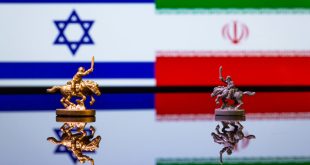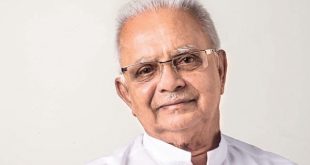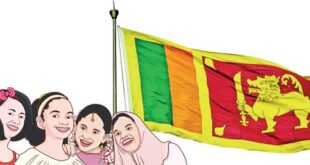Russia apparently believes that the longer the US presence in Afghanistan the greater the harm Russia will suffer. It even wonders whether the US is on a mission to destabilize it. Its worries may have increased last Sunday when the New York Times reported that minerals worth one trillion dollars had been discovered in Afghanistan. The report said:
"The previously unknown deposits — including huge veins of iron, copper, cobalt, gold and critical industrial metals like lithium — are so big and include so many minerals that are essential to modern industry that Afghanistan could eventually be transformed into one of the most important mining centers in the world, the United States officials believe."
It quoted an internal Pentagon memo as saying that Afghanistan could become the "Saudi Arabia of lithium," a key raw material in the manufacture of batteries for laptops and BlackBerrys.
If only the New York Times reporter had done his homework, he would have surely found that this was stale news. It was actually the Soviets who had surveyed the country and identified the mineral deposits during their ten-year occupation of Afghanistan. It was no secret to the Afghans either.
The timing of the news story suggests that the Americans are trying to pull a rabbit out of an old dusty hat, which the Soviets had dumped in the store room when they withdrew from Afghanistan.
The underlying message in the New York Times story is that the Americans are set to stay on in Afghanistan. Defeating the Taliban is not their sole objective. On the pretext of helping the Afghans to exploit their "new-found" mineral deposits, the Americans will stay on in Afghanistan to achieve three strategic objectives — to check China's growing influence in the region, to weaken Russia and to keep a close tab on developments in nuclear Pakistan.
The US knows it has lost the "Great Game" in Central Asia. Both Russia and China have virtually brought Central Asian countries into their sphere of influence. The only hold the US has in the region is in Afghanistan, a withdrawal from which will allow both China and Russia to establish a geographically contiguous zone of influence that may extend all the way to West Asia via Iran and Iraq.
This is why the US probably feels that checking Russia and China is strategically important. With China being the tougher target, the US focus is largely on Russia, which is not unaware of the US moves.
.jpg)
Russia was angry last week. Reports circulating in Moscow said that Prime Minister Vladimir Putin had told Russian troops that they should be prepared to confront American forces in Afghanistan. The remarks followed Russian Deputy Prime Minister Sergei Ivanov's warning that Afghanistan's thriving drug trade supported by the US and NATO had become the "greatest threat to international peace and security".
Russia, the world's largest per capita heroin consumer, with an estimated 30,000 people dying of abuse annually, last week hosted an international conference aimed at combating the flow of drugs from Afghanistan. Seventy metric tons of Afghan heroin worth $13 billion is consumed in Russia every year, according to U.N. estimates. UN figures also show that $352 billion of drug profits were absorbed into the international banking system to prevent the crash of the banks during the recent financial crisis.
The conference was told that Afghanistan accounted for more than 90 percent of the global heroin production which had seen a marked increase after the US invasion in October 2001.
But Russia' global initiative to combat the drug menace received only a lukewarm response from the United States. The Americans' argument is that if they cracked down on the poppy cultivation in Afghanistan, it would push disgruntled Afghan farmers into the hands of the Taliban.
In March, NATO rejected Russian calls for it to eradicate opium poppy fields in Afghanistan, saying it cannot be in a situation where it removes "the only source of income of people who live in the second poorest country of the world".
It looks like the Americans apparently see a strategic value in the drug trade. The drug business is not strange to the Central Intelligence Agency (CIA). Its history shows how it made use of the drug money to help Chiang Kai-Shek's war against Mao Zedong's forces and how it worked jointly with Central American drug cartels to promote rightwing rebels.
Is it a coincidence that Afghanistan's biggest drug lord is President Hamid Karzai's brother Ahmed Wali Karzai? He gets all the protection needed to produce, process, transport and sell heroin.
In May, Russia's Drug Control Chief Victor Ivanov in a report to the Russian parliament equated the Afghan drug menace in his country as the second edition of the opium war — a reference to the 19th century conflict that arose when China tried to stop British efforts at smuggling in opium.
.jpg)
Andrei Klimov, the deputy head of the foreign affairs committee in parliament was quoted in the Russian media as saying, "I can name you a lot of politicians in Russia who said that the Americans specially arranged the situation in Afghanistan so that we would receive a lot of drugs, and this is the real aim of their occupation."
Last year, in an interview with Russia Today (http://rt.com/Top_News/2009-08-20/afghanistan-us-drug-trafficking.html), a former Russian military Commander, Mahmut Gareev, said the US was not going to stop the production of drugs in Afghanistan as it covered the costs of their military presence there.
"Actually, they (the US and NATO troops) themselves admit that if drugs were smuggled past them, they wouldn't interfere. Why? …. Americans themselves admit that drugs are often transported out of Afghanistan on American planes. Drug trafficking in Afghanistan brings them about 50 billion dollars a year — which fully covers the expenses tied to keeping their troops there."
The allegations that drug money was being used for political purposes are not new. During the Soviet occupation of Afghanistan, the CIA is said to have helped Afghan drug lords such as Hezb-e-Islami leader Gulbuddin Hekmatiyar to raise funds for the resistance through the sale of heroin.
In the 1980s, a US Senate report compiled by a committee headed by Senator John Kerry, concluded that US State Department officials got involved in drug trafficking to help Nicaragua's right wing Contra rebels who were fighting the socialist Sandinista regime.
Investigative journalist Gary Webb in a series of articles to the San Jose Mercury News wrote that the CIA facilitated Nicaraguans linked to the Contra rebels to raise funds for the movement by smuggling into and selling cocaine in Los Angeles.
The CIA's link with Panamanian strongman, Gen. Manuel Noriega, a well-known drug baron in Central America, was another black mark in the organization's record.
Noriega, as the head of the government of Panama, had been assisting the Contra rebels at the request of the US. In return the CIA allowed him to continue his drug business. When the US Drug Enforcement Authority tried to indict Noriega in 1971, the CIA which was then headed by George H. Bush, who later became the US president, prevented it.
When a US aircraft was shot down over Nicaragua by the Sandinistas in 1986, the documents the pilot was carrying exposed the CIA's connection with Noriega. It finally led to the arrest and the imprisonment of Noriega.
Coming back to Russia's drug problem, much of Afghanistan's heroin, incidentally, reaches Russia through Kyrgyzstan's Osh district, which this week saw bloody ethnic clashes in which hundreds were killed. Was it a coincidence that the clashes were started by rival drug mafias and allowed to assume ethnic proportions? Kyrgyzstan is the only Central Asian country that houses a US base and a Russian base. The pro-Moscow Kyrgyz interim government called on Russia to send in troops to restore order. But Russia declined, though it offered some logistical help. Tension in the region is good news for Afghan drug lords and also the Taliban who also depend on drug money.
 Sri lanka Muslims Web Portal Diversity and Inclusiveness
Sri lanka Muslims Web Portal Diversity and Inclusiveness



